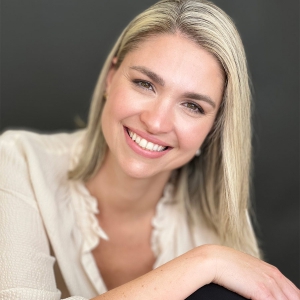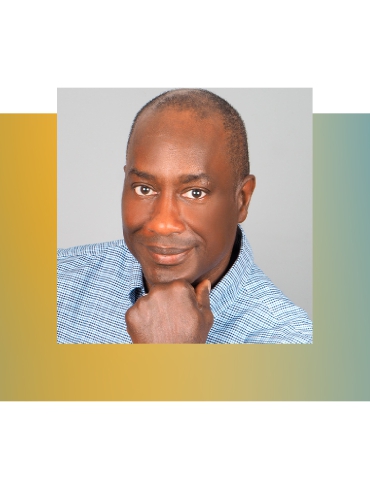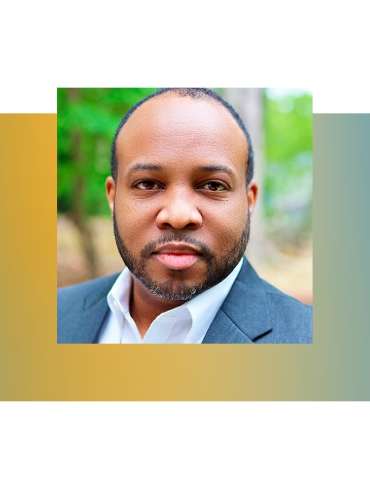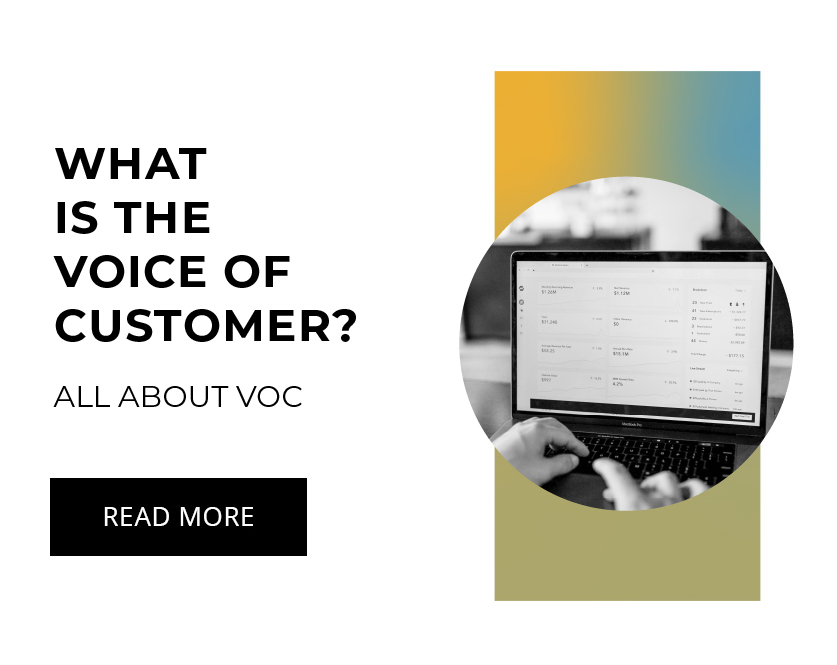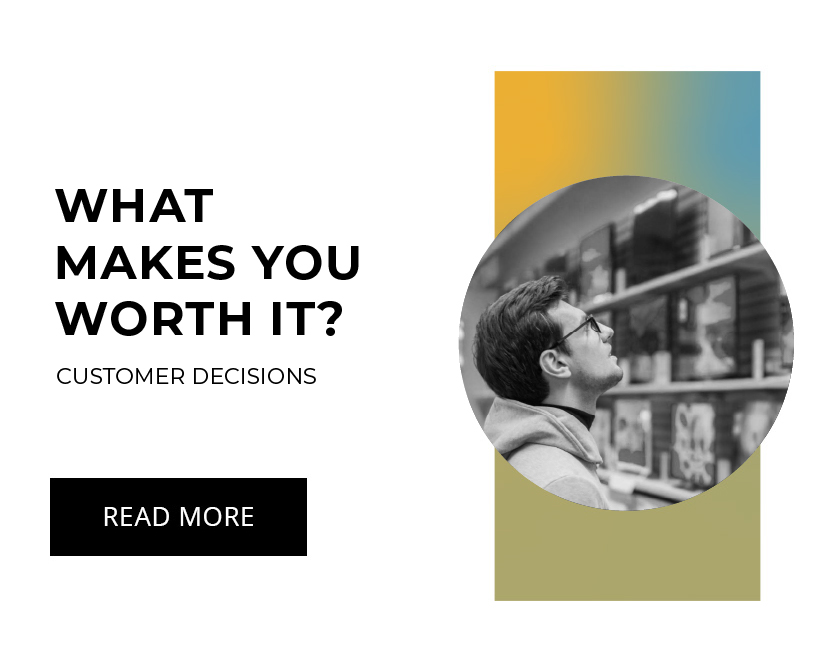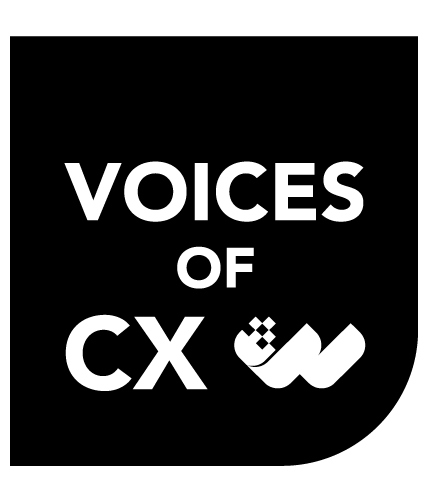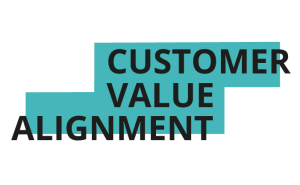About Clare Muscutt:
Clare is internationally recognized as ‘the thought leader who did the job’ and delivered award-winning commercial results, leading the CX functions for some of the world’s biggest companies in hospitality, retail, and B2B, including Whitbread, Sainsburys, and Compass Group. In 2017 she founded CMXperience Ltd., a boutique CX design agency based in London, and traveled the world as a global keynote speaker. During the pandemic turned her hand to digital content as the host of the Inspiring Women in CX podcast, before making the leap into founding the WiCX community, as CEO in 2021.
Follow Clare Muscutt on LinkedIn
Follow Clare Muscutt on Twitter: @ClareMuscutt
Follow Clare Muscutt on Instagram: thecxnomad
Join the Women in CX Community
This episode was also recorded in video format. To watch the conversation, tune in below:
Mary Drumond
Mary Drumond is Chief Marketing Officer at survey tech startup Worthix, and host of the Voices of Customer Experience Podcast. Originally a passion project, the podcast runs weekly and features some of the most influential CX thought-leaders, practitioners and academia on challenges, development and the evolution of CX.
Follow Mary Drumond on Linkedin
Follow Mary Drumond on Twitter
Follow Worthix
About Worthix
Worthix was born in the Experience where customers are the backbone, and customer-centricity is the soul of every company. Innovation is at our core, and we believe in welding technology to bring companies and customers together. Our purpose is to use cutting edge mathematical models and Artificial Intelligence to extract actionable, relevant, and easy-to-understand insight straight from your customers’ minds.
Transcript:
Mary Drumond: Hello, and welcome to one more episode of Voices of Customer Experience podcast with video this season we’re on season seven and today I am joined by Clare Muscutt. Hi Clare.
Clare Muscutt: Hey, how are you doing?
Mary Drumond: It’s great to have you, we’ve talked about having you on the show for so long. So I’m really glad that we finally managed to lock this down and get you on here.
Clare Muscutt: Thank you for having me.
Mary Drumond: Awesome. Okay. So, I wanted to kick off today. I mean your face is pretty well known at this point in the CX community, but we have a lot of listeners who aren’t directly involved in the CX space as much. So I wanted to take a couple minutes for you to introduce yourself who you are, what you do, what you’re passionate about.
The floor is yours.
Clare Muscutt: Okay. Cool. So yeah, I’m Clare Muscutt and I’m founder and director of a boutique customer experience, design agency CMXperience, but also the founder and CEO of a new initiative called Women in CX, which I’m sure I will talk a lot more about later. My background was originally starting in hospitality on the shop floor.
So I began, my life in CX as a waitress. Did a master’s in marketing while still working on the front line. And found myself at the age of 23, running a hotel and restaurant for a huge company in the UK called Whitbread. Began my CX career in the office there and never looked back really.
But I think my story probably is that I got to grips with the fundamentals of customer and employee experience by being hands-on and living it. So that when I came into the office roles, it wasn’t just a theory. It was, I been there. And I knew what it was really like. And then I spent 15 years working in FTSE 100 organizations developing this model for customer experience design that I now talk about today.
And I spent five years in retail working for one of the UKs largest retailers Sainsbury’s and in 2017, I quit. I jacked it all in. I left my safe job, started my consulting business. And up until the pandemic was having the best time flying around the world as a consultant and keynote speaker running workshops literally living the dream.
And then as the pandemic hit my life pretty much fell apart.
Mary Drumond: So that’s kind of what I wanted to focus on today, which is your transition. How sometimes out of the most horrifically tragic circumstances we gain so much and I think that you managed to do this. So tell us a little bit about what happened.
I mean, everybody knows that 2020 was a shit year. Let’s be really honest about it.
Clare Muscutt: A shit show indeed.
Mary Drumond: A lot of us were hanging on by a thread. Many of us didn’t make it not only in a business sense, so many people lost their lives. Right? So for those of us who managed to stay healthy, managed to keep our businesses afloat or managed to secure some sort of employment or business opportunity, I mean, there is a lot of gratitude, but that doesn’t subtract from the fact that it really, really was a difficult year and a really hard road.
So how was it for you and how did you manage to pull through.
Clare Muscutt: Got to take a deep breath to tell you this story. Because you know, as you said, I didn’t lose anybody in my health. Didn’t get affected, by my physical health, but my mental health was the worst I’ve ever experienced in my life.
So as I said, you know, kind of going from having my dream life, to watching, my diary empty, all my bookings get canceled. All of my clients say we’re putting all of this work on hold. We’ve now having budget cuts. Can’t see when it’s coming back. And then my personal circumstances changed as well.
Like, all at the same time, my relationship ended, my friend that I lived with moved out. So moved back to London. So I was basically alone in the house. Not able to go anywhere with no work to do. And compared to the life that I had before, it was just night and day. And I guess it gave me time to pause.
Reflect actually, and start to do a lot of work on my personal development that probably I’d never thought or recognized I needed to. So to have experienced the crash that I did, the personal kind of mental health crash, having lost my identity, clearly even I didn’t recognize it at the time meant that I needed to be clear about who I was and what I stood for. Because in theory, it shouldn’t have affected me the way that it did if I wasn’t so attached to the identity or the image of being that person. And I guess it was at my lowest step when I was just desperate and searching for contact that human connection. When I became more active on social media, I think places like LinkedIn, I was already quite active on Instagram and I knew a lot of women by liking and commenting on each of this stuff, but I’d never actually connected with them more deeply than that.
You know, the odd message. It felt like we knew each other, but we did it. So, I kinda just threw it out there and said to some of these women, Hey, would you like to hang out on zoom? Kind of out of a combination of needing the connection and needing human contact. And those conversations were incredible.
So we started under the premise of CX, but the kinds of things we started talking about where like our backstories are history and there was just so much that we had in common. So many shared, lived experiences from being a woman in CX, as opposed to being focused on customer experience. So, the kind of re-invention of Clare Muscutt as this women in CX person occurred as a result of that.
So my guests were those connections that I’d made and had the zoom calls with. And when I said, Hey, this would make a really good podcast. Would you be okay to come and talk about it in front of people? And they were like, oh, I don’t know, I don’t know, and then they were like, yeah, let’s do it.
And that’s how the podcast was born basically. I did five live at fives on Instagram to get warmed up, to get some breakfast. Cause I was so scared. And then week after week, we just solidly committed to. Producing, self producing, self publishing this podcast, and it gained momentum really quickly.
It was applauded for the vulnerability women showed. We talked about some really difficult issues, which I’d never had guests talked about in CX circles. Everything from racism, homophobia, child loss, dealing with cancer, the pressures that women were feeling and the mum guilt of trying to maintain working through COVID, and so many women were like, this has happened to me too, or I feel like that. And all these connections just started to happen between women all over the world as a byproduct of the podcast. So I became so clear and laser focused on this is my purpose. This is what I was put here to do. It wasn’t just to do CX.
It was to help provide a platform for women. And I was just a bit stuck, really. Cause I had no money. I wasn’t earning anything. How was I going to like do something more with this, but you know, I’d given all my free time and invested the last bit of money I had in kit. And then all of a sudden this angel appeared.
In the form of Jonathan Schwartz from Officium Labs, who Nate Brown put in touch with me after we just happened to catch up on a zoom for the first time. And he offered us the money to get started. Yeah so recognizing that more women needed this platform, this way of connecting with one another during the pandemic became a startup. And that startup went from discover and research in December to launching on international women’s day on March the eighth.
And when I have a wait list of 200 members and our first thirty beta founding members, paid founding members as well. Joining us on the 22nd of March, which I just can’t quite believe really, you know, that none of this really was planned. It was all about following the passion and the purpose. People were drawn to it and attracted to it.
And I’ve never felt so good about what I do. So that’s me.
Mary Drumond: That’s awesome. It’s such an inspiring story because. Like you said, I feel like so many people identify on so many different levels and not only women in customer experience. Sure that’s the vertical that you and I work in, but women everywhere. And there’s a larger message there.
I do feel like even though there are a lot of initiatives for women, there is a sisterhood that has been encouraged, let’s say to people who not only have a similar reality to yours, but to people who work in the same place or in the same market or in the same industry. So they’ve got similar struggles and there is a unity that is formed around that commonality and being able to form intimate connections and share accomplishments, goals, dreams, fears in a safe space.
Really does resonate. It resonates with me when we were having a pre-call yesterday. You know, you and I started talking about all of this stuff and I was like, whoa, you know, it feels so good to feel safe to discuss those fears, you know? So I’m really excited for this project of yours and I hope to participate in any way that I can as well.
Clare Muscutt: Come and join us.
Mary Drumond: Oh, I will. And towards the end of this podcast, I want to get all the information for how people who are listening can partake as well, but we’ll get there. Let’s reel it back in to the business side of it. Because I get carried away with the emotional side of it. But from a business standpoint, all of that experience that you accumulated your years in the market, not only working in the office or as an executive, but working the floor, like you said, being a front liner, how did that all come together, to the business that you’re working in now? And how do you believe that it inspired you to do something different?
Clare Muscutt: So, yeah, well, I guess whenever I worked in corporate or with clients, there was always something stopping me from doing it the way that I really wanted to that was completely human centric or customer or employee centered.
And now it’s my business. I get to do it my way and I don’t have any stakeholders that I have to please. And I don’t have any technology legacy that I have to kind of work around. So basically I guess this is the culmination of all of those years of experience and going right okay this is it, this is a blank sheet of paper to do it the way that we want to do it.
And to absolutely put our members at the center of the story, and it’s all been done entirely by co-design. So from the first conversations in December being qualitative interviews, where women shared their kind of goals and struggles, using that insight to formulate our initial propositions, our initial personas, I’m going out and doing quant research based on that to test areas of interest in the proposition and even our values, you know, do these resonate with you, kinds of questions, back through to a group of like 12 women in CX designing the core customer journeys in like a workshop style through to having alpha and beta members who are joining us on the journey to continue this build.
I don’t think you can get any more members in check than that. And the people that have joined me were part of the research, they were like, you know, I really want to be part of building this community. They were so passionate and keen. I think a lot of the time organizations struggle to have people who genuinely believe in the vision and the purpose, and it quite often just become statements.
But I know every single woman that’s around me really believes, and we’ve got to continue that as we scale. So, yeah, it’s been pretty cool.
Mary Drumond: Do you think that the reason why big organizations fail on so many levels is exactly for the reason that you just said, which is that they have employees, but the employees feel like they’re doing the job.
Whereas you feel like, and your team, you feel like you’re living out a passion.
So do you think that’s an element that might be missing?
Clare Muscutt: Well, I guess I’d never worked in a startup before, so I’d never had this experience myself I’d only ever worked in or with big old, typically older companies. So yeah, I think having worked in big organizations that culture change program seems to come around once a year.
Here’s our latest set of values, here’s our latest customer service training, the thing never sticks. So, you know, companies like Sainsbury’s, they had employees that had been there and they stayed a really long time, you know, like 10 years was the average length of, loyalty of it, of an employee right up to like people who are eighty still working there, you know, they have jobs for life. But trying to create culture and or change culture or affect culture is all down to how people are led. And if you don’t see your immediate line manager acting with passion, dedication, complete customer obsession.
No one in the organization below them is going to take it that seriously. So for me, I think, you know, passionate, enthusiasm is infectious. It’s all about role modeling. And if there’s a bad apple in the car, you’ve got to get them out and bring in the fresh kind of passion and enthusiasm that wants to be part of that journey.
But I think that it’s probably like the management level recruitment, perhaps isn’t quite as customer centric and people get recruited not for their attitude or that kind of personality anymore. It’s like, okay, how many zeros have you delivered on a bottom line as a result or what an analytical skills can demonstrate. And don’t get me wrong, there are some amazing leaders out there. And, I’ve met and worked with so many of them, but there’s definitely a layer of middle management where the influence upon the employee is at its greatest yet the focus on their reward for being customer obsessed is the least.
Mary Drumond: I do want to be able to shine a spotlight a bit on the work that you’re doing of women in CX.
And I wanted to be able to discuss this and go over some statistics and some information that you have on, not only, you know what it’s like to be a woman and working in this field, maybe what are some of the frustrations that we face on a day-to-day basis and what are some of the things that you’re tackling in your community?
So take it away.
Clare Muscutt: Okay, so I should probably explain what the women in CX proposition is. And as I said, it’s an online membership community, but we have a members only social media network that looks and feels very much like Facebook or LinkedIn, where people can post stuff, DM each other, get involved, connect meet offline, do whatever they want.
There’s an events platform that’s also within it. So we can do things like co-design workshops and meet up and have conversations as groups. And then there’s the premium membership, which is called the women in CX co lab. And that’s why we’re focusing on personal and professional development.
So month one, we’re going to focus on emotion with a keynote from me about emotion in CX, a keynote from Sandra Thompson about emotional intelligence, and then a session with one of the world’s leading coaches, Veronica Rusu on how to engage and connect with your own emotion. Before we have a big mastermind together at the end of the month, in these curated groups, and we get to discuss all that kind of stuff.
And in the future, we’ll be offering the women in cx academy, which is courses, but a super low cost in comparison to what you’d be paying for at the moment. And well, we’re learning I guess as we go, we learned so much from the podcast and the interviews about the challenges that women face personally and professionally.
So to talk about some of those statistics that you can’t argue with them, but you know, coming out of college, there are more women than men qualified or ready for work. So I think something like 56% of women. Yet, by the time we get to the boardroom, the numbers drop right down and in the UK it’s 16.9% of women occupied board seats.
And I think internationally, I think it’s only 7% on the actual, like kind of CEO leadership positions with shocking statistics or data. Like there are more men, male CEOs called John than there are women CEOs. But when it comes to customer experience and I read an article that was published recently on CXM, if anyone wants to read it. About my theory about why CX is becoming dehumanized, and that was looking at the trends around women in tech as well. So if you look at artificial intelligence, sorry I have to look at my pink post-it note of notes. Artificial intelligence is 12% representation by women in development.
As in front end dev kind of roles, 11%. And then when it comes to startups and technology companies, they’re owned by men, they’re run by men. And when it comes to investment in them, only 8% of venture capitalists are actually a female too. So there is a huge gap in representation. When you look at customer experiences in industry, 70% of people who work in CX are female, but they’re just all on the front line.
And it’s, you know, part of the reason that women were so much more effected by the pandemic was because women typically were working in these service roles in hospitality and retail, that kind of thing. So yeah, I think we, well we as two elder millennials could probably think about why or the experiences we had on the way up.
And a lot of the stuff that women talked to me about is how gender bias, you know, it’s not just sexism, even though a lot of us have had that, you know, bosses propositioning you and saying, if you sleep with me, then that’s your route to the top. That happens to so many women, but the gender bias is more subtle than that.
It’s more a fact of if we’re assertive we’re perceived as a bitch or bossy, and nobody really wants us to be on the leadership team or if we’re emotional, we’re too sensitive. And then that’s a failure as well. So whereas men and women can have the same characteristics and traits in leadership. One side is commended for their authenticity and their empathy, whereas a woman would just be overly emotional and therefore, not valuable for the role. So, yeah, I think, one of the problems we’ve got is there are too few women in these senior roles and too few mentors available because of the women who only have a capacity to have as many women as they can have.
But then that’s where I think men come in and this challenge is not just ours alone. This cannot be solved by women by ourselves. We need allies and allies on, you know, those big leadership teams in those senior positions advocating for women leadership. So for example, when I, you know, gave the, the mention of mentors, there aren’t enough women to go around.
Okay, well, let’s find some guy mentors who want to support women to champion them through their careers and challenges. And I personally have a male mentor. I was always looking for the woman of my dreams to be my mentor, but I never found her. But I found plenty of like genuine guys who wanted to support me.
But then I think men face into this challenge of gender stereotyping on their side. Why do you want to help women what’s in it for you? Are you going to have, are you thinking about having an affair or, and my male mentors have said that that’s one of the things that worries them, like if they get accused of doing the wrong thing or having the wrong intention.
So for me, there’s some bigger global conversations that need to happen between men and women, about how we support one another. I know in the UK today, we’ve just had a terrible, terrible piece of news about a young woman who was kidnapped off the streets of London murdered by potentially a police officer.
And women do not feel safe. This is evidence that we are not safe. We are the victims of domestic violence, not just disproportionately. And again, you know, where is this coming from? Why do women feel like we can’t, we have to manage our behavior to be safe. We have to not drink too much just in case, or we have to not stay out too late or walk home alone when it shouldn’t be that way. And there’s a lot to be done to, to change that. And I think it’s back to the youth again, you know, how are we raising our boys to respect women and know not to hurt them and challenge the male gender stereotype of having to be macho and emotionless and keep all your feelings inside.
So, yeah, I could talk about this all day, but I’m a feminist, as you can tell, but an intellectual one that believes that men are part of the solution too.
Mary Drumond: Yeah. I was listening to a podcast the other day and Angela Duckworth is a social psychologist, who’s pretty well known. And she was talking about a piece of research where real change towards gender equality in the workplace started with CEO’s who had daughters.
Clare Muscutt: Yeah.
Mary Drumond: And that’s interesting for me because it’s the empathetic part. Once they realized that they wanted a different world for their daughters, that they didn’t want their daughters to grow up in that world. That’s when change started happening. So the truth is that women can make all the noise we want.
We’re still outnumbered the numbers that you just said. Are proof that we’re outnumbered and that we can’t do it alone. We need to find men who believe in equality and understand, and who champion that. And it’s a different world now than the, those first CEO’s with daughters who started this revolution.
Of course, because a woman at some point was brave enough to ask why she couldn’t have the same rights and the same responsibilities and the same credentials let’s say. But you know, the one thing that’s interesting is that I do strongly believe that there are many men, like you said, who understand the issues and who are willing to do something about it.
And we need to extend our hand, in the sense of bringing them on board in initiatives. I know that that’s a little bit controversial where, you know, it’s not our obligation to educate men about gender bias, but sure. I do think that it’ll speed things up though. And I do think that bringing them into our communities and showing them how they can make a difference.
I do think it’ll speed things up. And, yeah, but I want to study more. I want to research more so that I can have more concrete facts on how we can recruit good men to join the movement and help. Do you have any information on that? That I don’t have.
Clare Muscutt: Well no, I was going to say, like, as I booze on my journey of women in CX, men in CX started appearing and with the same kind of message of support, as many of the women in CX did.
So people like Matt Wattkinson, Ian Golding, Adam Toporek, Adrian Swinscoe, were all like Clare, how can we help? How can we be allies? And they are vocally supporting women in CX and at the right time will be coming into the community to share the knowledge and wealth, that they have with women.
Also, you need like that male mentorship opportunity, as I said, there aren’t enough women to go around. How do we spread that about. Yes in terms of like data and statistics, haven’t got any on hand. I exhausted my sheet, my pink post-it note, but I think the question –
Mary Drumond: Do you think that’s something that’s worth like worth dedicating some time to almost like workshops for men by women?
Clare Muscutt: I don’t know, you know, I’m not sure if it is our responsibility to educate men about gender inequality. Like the same thing with racism, I don’t think the burden of education should fall on the person experiencing racism. And there’s a lot that you can learn yourself like by reading. So any guys out there read Mary Beard, that’s a great early feminist book that will help you get your head around it. There’s a lot of literature available. If you have sisters, wives, daughters ask them about the challenges that they face, let them tell you. And just listening would be my advice about how to educate yourself. But it’s not, like you’re asking to be educated. You’re empathetically listening to their lived experience. And I know when those conversations happen, that’s when change occurs because you might not have had the insight into how that person felt when they experienced sexism or racism or homophobia or ableism or any of the other inequality and challenges.
So for me, ultimately, it’s about diversity representation, fairness, equality. Yes, we all need to be in it together. Yes, we need to call out when we see and hear things that aren’t right, on any kind of ism. And standing up against people who are actively attacking others or actively behaving in a way, which is unfair. And for the ignorant or as in like, not nastily ignorant, but those that just don’t know, go out and find out, listen, learn, read, you can do it.
Mary Drumond: Yeah. I also challenge women in the workplace to unlearn some of the gender biases that have been passed on from previous generations to us, we learned those biases as well. And we tend to, at times, even when we’re really conscious about the issues, slip into a gender bias and judge other women that are around us and, you know, consider how the same stereotypes that men apply.
I think women do that too. And we really all need to be very conscious of that and be willing to unlearn some of the stuff that we were taught.
Clare Muscutt: Yeah, I don’t think it’s about unlearning as in, it was a negative thing that we picked up. It became a habit and a way of protecting ourselves. So I can recall times where I’ve offered to go and make the tea for the guys. Slipped into the mothering caring kind of role in a group session rather than the wrapping up and being the dominant person who’s making us move forward.
I think there’s things like apologizing. I didn’t realize how often I said, sorry, just for being free existing. Oh, I’m sorry. Well, apologizing in an email for Bob. Like I think it’s conditioning that we’ve had. That means if you stay small, you stay safe. If you don’t put your head above the parapet and use that voice to command, like in a positive voice though, you’ll stay safe and no one will attack you.
And I think you are kind of partly right there. There is a risk of female competition, especially in corporate where if you’re not careful, someone will stamp on you just to make sure you don’t take their seat at the table. Whereas what we’re doing at women in CX is just building a bigger table. The table could be as big as we like.
Mary Drumond: That’s right!
Clare Muscutt: But fostering and encouraging that kind of collaboration and those safe spaces, being like, no, we are a sisterhood. We are CX sisters for life. And I’ve lived it myself. You’ve seen what happened to me in 12 months. I went from losing everything to feeling on top of the world, more supported than ever and clearer on my purpose and happier.
That’s not just because I had a good business idea and applied awesome CX it’s because I was surrounded by women who collaborated with me to do it. So let’s just keep building bigger tables and we’ll take our seats there, like we own them, not like we have to apologize for sitting down.
Mary Drumond: That’s a great way to sign off today.
Now, before we go, Clare, how can people learn more? Join, participate, support.
Clare Muscutt: Yeah. So I think any women who are interested in joining the community, just head over to our website, which is literally www.womenincx.community. What great URL to have grabbed. And you’ll find out there about our waitlist, about our product demo.
You’ll be able to see what we do and who we are. And for anyone who’s interested in supporting women in CX, we’re also open to sponsors, partners, and for any guys out there who think this sounds interesting, men in CX, please do get in touch with me. Because as I said, we’re looking for allies. We’re looking for mentors to support women too. I’d love to hear from anyone who thinks that they could play a part in raising the voices of these wonderful women that I know.
Mary Drumond: Awesome. Thank you so much for coming on today. It’s been great.
Clare Muscutt: Thanks for having me. Oh, sorry. No, I should also say and please listen to the podcast. We’re having a little tiny rest at the moment, but Mary would be amazing if he came on. I think we would have a great conversation.
Mary Drumond: I would love to.
Clare Muscutt: Thank you so much for having me.
Mary Drumond: Great. Awesome. It was great to have you on, and I hope that I am able to bring more and more women on this podcast. And so they have an opportunity to share their voice with us as well.
Clare Muscutt: Brilliant stuff. Lovely.

